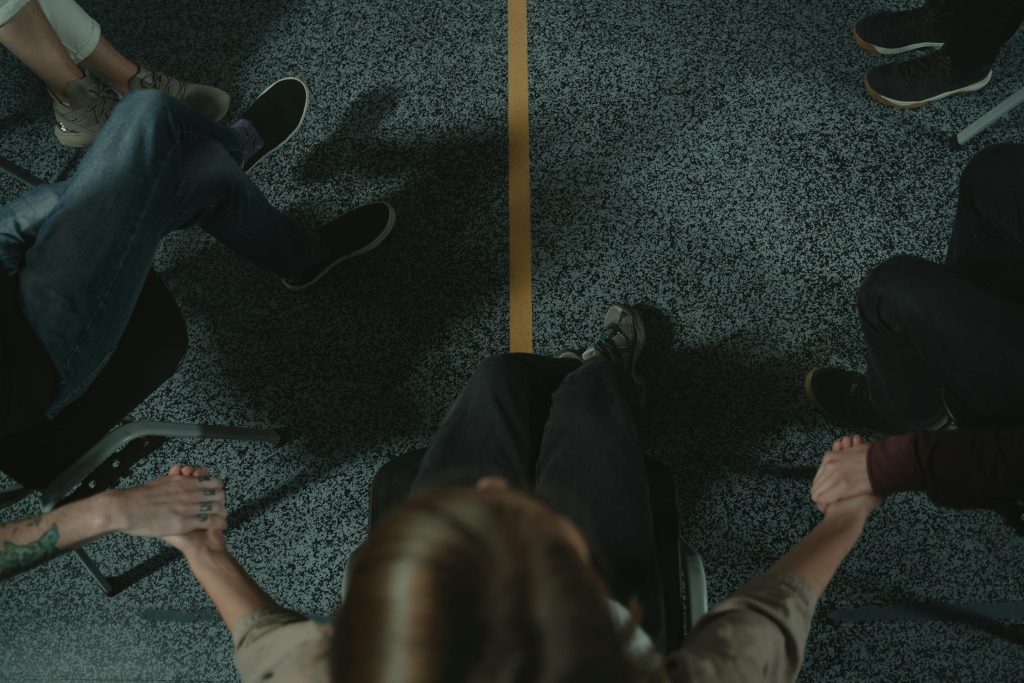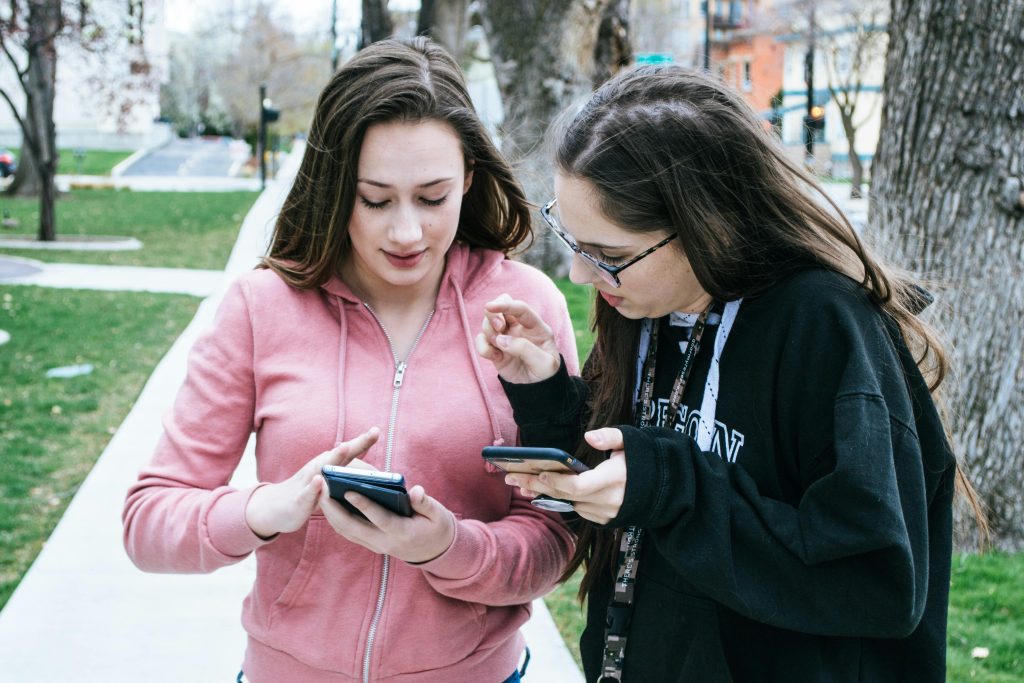
Gambling affects many Tasmanians – with just under half adult Tasmanians gambling regularly. Tasmanians lose an average of $1,676 per year each, and a total of $1million per day.
During a cost-of-living crunch, gambling losses can really increase the pressure on people feeling the pinch.
During Gamble Aware Month, Glenorchy City Council will be raising awareness about gambling and how it can cause harm in our community, promoting services which can help, and sharing tools you can use to help manage your gambling.
Keep an eye on our social media and the newsfeed on our website for more information.
Week One – Gambling affects Tasmania

Gambling-related harms are the adverse impacts from gambling on the health and wellbeing of individuals, families, communities and society. Read more from the Social Action Research Centre.
Gambling affects many Tasmanians:
- Just under half (437%) of Tasmanian adults gamble, including 18% of Tasmanians who engage in non-lottery gambling activities
- Tasmanians lose an average of $1,676 per year
- Tasmanian gamblers lose over $1 million per day
- 40% of gambling revenue comes from people experiencing gambling harm
- 8 in 10 Tasmanians believe that gambling does more harm than good
- Almost two-thirds of people seeking help due to gambling harm come from areas of Tasmania with less than average income – this includes Glenorchy residents.
Learn more about Gambling in Tasmania:
- Tasmanian Government Department of Premier and Cabinet – Gambling Support Program
- Anglicare Tas – Social Action Research Centre – Gambling Research
- Tasmanian Government Department of Treasury and Finance – Gambling data
- Tasmanian Government Report – Young People and Gambling 2022
- Learn about how gambling works and how it can affect people.
- Signs of Problem Gambling
- Test your knowledge
- Get gambling support in another language
Read the Glenorchy City Council Statement of Commitment on Gambling
Week Two – What is self-exclusion?
Self-exclusion is when you ban yourself from places where gambling happens or gambling websites. You can voluntarily register to be excluded from a gambling venue either temporarily or permanently. Self-exclusion can help people who want to cut down, take a break or stop all together.
Services like Gamblers Help can help you to find out more or sign up, and so can the venues themselves. You can ban yourself from venues like clubs, pubs or TABs, from placing a bet on gambling websites, or over the phone.
By law, Australian gambling providers must give customers the option to self-exclude from their venue or products.
How does it work:
- You choose the venues, casinos, or website to be excluded from,
- You sign an agreement not to go to that list of venues for the time period,
- If the venue staff see you there, they will report you to the program and ask you to leave,
- At the end of the time period, you can choose to sign up again or not.
This program works for all licensed online and phone gambling providers in Australia. Once you’ve signed up, you won’t be able to place a bet, open a new betting account or receive marketing messages from gambling companies.
Find out more:
Betstop – the national self-exclusion register.
Find out more about the Tasmanian Gambling Exclusion Scheme here.
Find out more from Gambling Help Online.
Get gambling support in another language.
Week 3 – Opt out of ads for gambling products

If you’re trying to take a break from gambling, it can be hard when ads keep popping up on your social media. There are ways you can limit or turn off ads for gambling products on your phone or device – it’s free!
Every social media platform or web browser has its own ad personalisation settings, you can find instructions for each platform through an internet search.
Learn more about setting up your digital device:
- Adjust your online settings and ad personalisation
- In-app purchasing
- Manage your digital safety settings
- Sign up for Betstop and opt out of gambling ads, apps and platforms entirely
- Contact your bank to ask about credit card blocks, which can block gambling transactions on your bank accounts.
Find out how to protect your personal information and report harmful content on common social media, games, apps and sites from the eSafety Commissioner.
Get help to turn off ads for gambling products on your device:
- Contact Rose at Glenorchy City Council Digital Ready Program – ph. 6216 6800
- Visit your local library for free computing and technology programs
- Ask at your local Neighbourhood House
- Visit a gambling support service like Gamblers Help Tasmania for one-on-one support
- Get an adblocker product – this is a kind of software which blocks advertising
Other ideas:
- Use apps to manage your gambling: GambleAware NSW
- Mute notifications from gambling apps you use, or uninstall them from your phone
- Sign up for Betstop – the national program from the Australian Government which blocks you from gambling sites as well as blocking gambling ads and marketing messages
Visit FindHelpTas to search for support services you need.
Find e-Safety information in languages other than English.
Week 4 – Young People, online gaming and gambling

Some online games are actually considered to be gambling sites because they make money from people paying to play, then taking chances and losing.
They often look like casino tables, slot machines (or ‘pokies’) and card games like poker.
Games that encourage you to pay for in-app items like ‘loot’ boxes, without knowing what’s inside, may seem normal. But there’s a risk that if you get nothing of value, you will want to play again and again until you ‘win’ – even though it costs you lots of money.
This means you may actually be gambling without realising it.
Chasing the excitement can become hard to resist, and hard to pay for.
If you are under the age of 18, gambling is an illegal activity whether you play online or offline.
Find out how common gaming is from the eSafety Commissioner.
- 89% of Australian children aged 8 to 17 have played an online game in the last year
- 94% of young gamers had ‘positive feelings’ when they were gaming online
- 91% of parents play games with their children to connect as a family
- 79% have played a multiplayer online game with others
- 40% have played online with people they did not know offline
- 32% have experienced bullying or abuse while playing a network game with others
Read eSafety’s research looking into The risks and benefits of online gaming for young people.
Young people in Tasmania recognise that gambling can be problematic, addicting and damaging.
In the Tasmanian Government report into young people and gambling (2022), young people said that they experienced:
- Financial troubles such as being in debt or unable to pay for the basics
- Impacts on mental health such as increased stress, depression or anxiety
- Negative impacts on their social life, such as break down of important relationships, arguments, family conflict.
Often, young people won’t ask for help when it comes to gambling. This might be because they:
- May not realise help is available
- May not believe they have an issue
- Feel ashamed about getting help
- Are worried about other people finding out.
Find out more from Gambling Help Online.
Support is available!
- Anglicare Tas – Gambler’s Help Service
- Family Drug and Gambling Help
- Gambling Help Online – young people and gambling
- Betstop – block yourself from online or phone gambling
- Learn about blocking gambling ads or self-exclusion programs
- Video resource about gaming & gambling (English, Arabic, Dari, Bengali, Punjabi, Pashto & Tamil)
For young people:
- Ask a trusted adult like your favourite teacher
- Speak to someone in the Glenorchy City Council youth team on 0459 961 182, or come to
- Visit your local Neighbourhood House
- Headspace – 03 6231 2927
- Pulse Youth Health Service at the Glenorchy Health Centre
For parents:
- Learn more about online gaming from the eSafety Commissioner
- Learn more about online parental controls and how you can block specific websites, filter content, limit who can communicate with your child/manage apps, set time limits or monitor your child’s use of connected devices.
Visit FindHelpTas to search for other support services.
Get gambling support in another language.
Event:
On Friday 20th September, Anglicare Tasmania and Glenorchy City Council will host a performance of Three Sides of the Coin at Moonah Arts Centre from 11am-1pm.
Three Sides of the Coin (3SOC) is a lived experience performance project, which invites community in to share the stories of people who have lived experience of gambling-related harm, supported a loved one who is experiencing gambling harm or affected by others’ gambling.
Recognised as pioneering and powerful, 3SOC storytelling continues to reach audiences across Australia igniting conversations, challenging stigma and building empathy.
Shame and stigma make it hard to speak out, but the incredible storytellers of 3SOC use their stories to change the conversation about gambling in our communities.
This event will be free, and everyone is invited.
Book tickets online here – https://www.eventbrite.com.au/e/three-sides-of-the-coin-project-performance-tickets-1002179444697
Resources:

Read stories about recovery from real people
Self-assessment tool – are you worried about gambling?
Online self-help gambling modules – giving you the tools to make a start.
Anglicare Tas Gambler’s Help online learning modules
Support is available:
- Gambling Helpline Tasmania – a 24/7 service 1800 858 858
- Gambling Help Online
- Gamblers Help Tasmania – Anglicare Tas ph. 1800 243 232
- Financial counselling services from MoneySmart, Anglicare Tas, Salvation Army, Rural Business Tasmania Inc, Wesley Mission and more
- Ask at your local Neighbourhood House
- Family Drug and Gambling Help – for family and friends impacted by someone’s drug and alcohol use or gambling.
- Lifeline Tasmania – 1800 98 44 34
- Translated resources from Women’s Health Tasmania – Nepali, Tigrinyan, Farsi/Persian and Chinese
- National Debt Helpline
Visit FindHelpTas to search for other support services.
